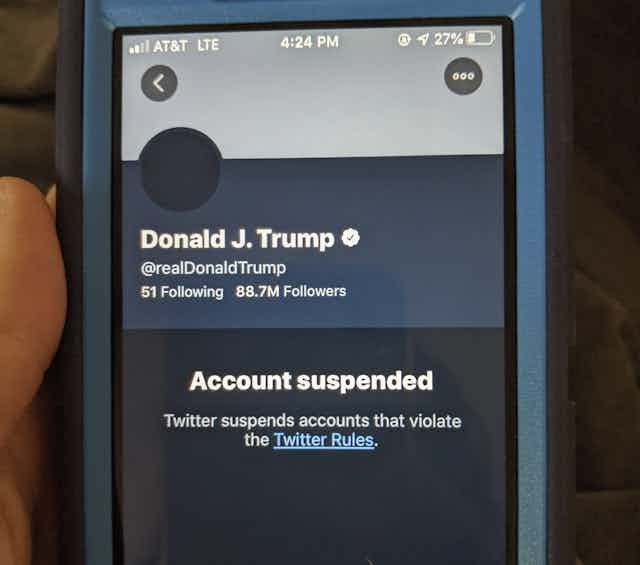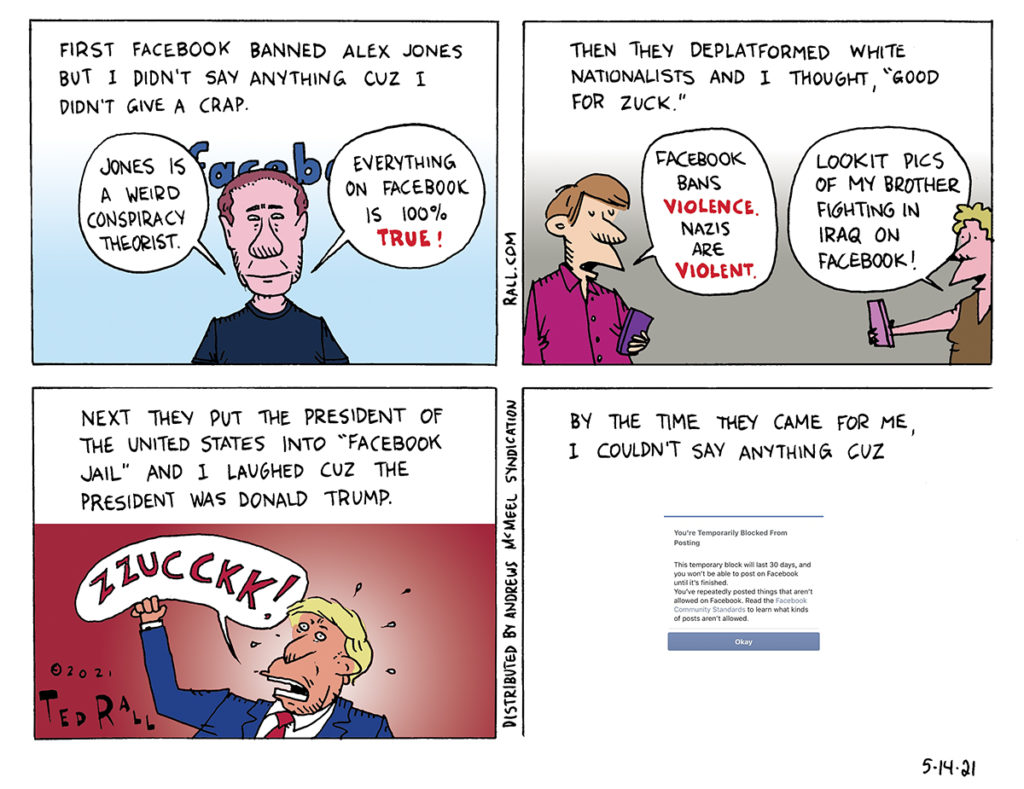 If someone said something I found annoying or offensive, my mother taught me, the appropriate response was to allow them to finish speaking and reply with a calm, considered counterargument. Now you’re supposed to talk over them until they shut up.
If someone said something I found annoying or offensive, my mother taught me, the appropriate response was to allow them to finish speaking and reply with a calm, considered counterargument. Now you’re supposed to talk over them until they shut up.
Or, better yet, cut their mic and show them the door.
Censorship has become a bipartisan norm. Why waste the time and energy to conceive and articulate an intelligent rebuttal when you can make your opponent shut up?
Alan Dershowitz, a nationally-known former Harvard Law professor, announced that he was leaving the Democratic Party because the party’s organizers allowed pro-Palestinian speakers to address its convention in Chicago. “They had more anti-Jewish, anti-Zionist people who were speaking, starting with [Representative Alexandria Ocasio-Cortez]–a miserable, anti-Zionist bigot,” Dershowitz said on “Talkline with Zev Brenner.” “Then of course they had [Senator Elizabeth] Warren, who is one of the most anti-Jewish people in the Senate. Then they had Bernie Sanders, one of the most anti-Jewish people in the Senate.” (Sanders is Jewish.)
“[B]y giving them platforms, what it says is that when AOC does call Israel a genocidal country and rails against it, she now has the imprimatur of the Democratic Party,” he argued.
On the opposite side of the ideological divide, high-profile podcaster and ex-Fox News host Tucker Carlson caught flak for hosting Darryl Cooper, a Holocaust revisionist, on his show on the social media platform X. Representative Mike Lawler of New York, told The Jewish Insider: “Platforming known Holocaust revisionists is deeply disturbing.”
I’m a leftist. Some of my fans lost their minds when I invited former Klansman David Duke to guest on my old talk-radio show on KFI Los Angeles. Feeling betrayed, they accused me of amplifying and tacitly endorsing a voice of the racist alt-right. I recall the exchange as vigorous, challenging and a rare opportunity to hear ideas on both sides of a variety of issues aired in an intelligent format.
The way I saw it, many Americans share Duke’s far-right views whether they hear them on the air or not. This was a chance to expose the existence of these thoughts to blissfully unaware liberals and workshop arguments against them. I would do it again in a heartbeat—but I’d become the target of even more venom now.
Platforming speech is not the same as endorsing what is said.
Platforming is the act of providing a means of public expression. A newspaper that publishes an interview with or even just a short quote by a person gives them a platform. A college that invites someone to give a speech or participate in a panel discussion is engaged in platforming, as is a cable network that decides to add a channel to its lineup.
None of these actions is a tacit endorsement.
Nor can it be.
Unless it limits its opinionists to a single voice or aggressively enforces a rigid set of ideological strictures upon a group of them—no one need apply unless they are, for example, socially liberal, fiscally conservative and opposed to military adventurism except in Myanmar—any newspaper’s decision to simultaneously platform one writer who disagrees materially with a second writer (and a third and a fourth) means that, by definition, there are contrasts and disagreements. Inherently, because no institution can simultaneously endorse conflicting points of view, no endorsement has occurred
Many news stories include quotes by both a Democrat and a Republican. If platforming the Democrat is an endorsement, how should one explain the appearance of the Republican? Most universities host speakers representing a range of views on a variety of subjects, many of them controversial. It makes no sense to imply that those institutions agree with everyone they invite on campus.
Until fairly recently, most Americans appreciated the value of showcasing a spectrum of ideological and stylistic views in public fora. Supreme Court Justice Louis Brandeis famously wrote in 1926 that the solution to offensive speech was “more speech, not enforced silence.” Today what we call Brandeis’ counter-speech doctrine—the answer to bad speech is good speech, not censorship—is in grave danger. Rather than argue against their opponents, cultural and journalistic gatekeepers are increasingly resorting to telling those with whom they to disagree to STFU.
Censorship drives dangerous rhetoric underground. It conveys a sense that purveyors of “mainstream” opinion are contemptuous of others, unable to defend their views, possibly intellectually feeble, and just plain bullies. Mostly, it doesn’t work.
After the January 6, 2021 attack on the Capitol, Twitter suspended 70,000 accounts, including that of President Donald Trump. Facebook acted similarly. A year later, in 2022, liberal censors claimed victory. “The best research that we have suggests that deplatforming is very powerful,” Rebekah Tromble, director of the Institute for Data, Democracy and Politics at George Washington University, told NPR. “It means that really prominent actors who helped stoke the Stop the Steal campaign that led to the insurrection have much less reach, get much less audience and attention. And that is very, very, very important.”
Was it? Donald Trump, the biggest January 6er of them all, is also the undisputed kingpin of the Republican Party, in whose primaries he ran unopposed. Running neck and neck with Kamala Harris, he may easily be reelected.
The belief that editors, producers, tech CEOs and other gatekeepers control enough outlets to deny their enemies an outlet to a significant audience is a profoundly flawed assumption. To whatever extent this was true in an era of four television news networks and cities with a morning and afternoon paper and not much else—and, even then, there were underground presses and alternative newsweeklies like The Village Voice—the Internet has blown that idea to smithereens. Al Jazeera, the Qatar-based cable news network whose American channel was shut down after the War on Terror-era Bush Administration leaned on U.S. broadcasters, disseminates live news from Gaza and other global hot spots via its website, which is one of the biggest in this country. InfoWars, Alex Jones’ “fringe” news site, gets 19 million views daily despite Jones’ epic legal defeat at the hands of parents whose children were killed at Sandy Hook Elementary School, who were awarded $1 billion. Any government or other corporate entity that tries to control information narratives in an era of fragmented media is playing whack-a-mole with a million rodents.
As long as there’s an audience for what someone has to say, you can’t keep a good—or bad—man down.
(Ted Rall (Twitter: @tedrall), the political cartoonist, columnist and graphic novelist, co-hosts the left-vs-right DMZ America podcast with fellow cartoonist Scott Stantis. His latest book, brand-new right now, is the graphic novel 2024: Revisited.)


